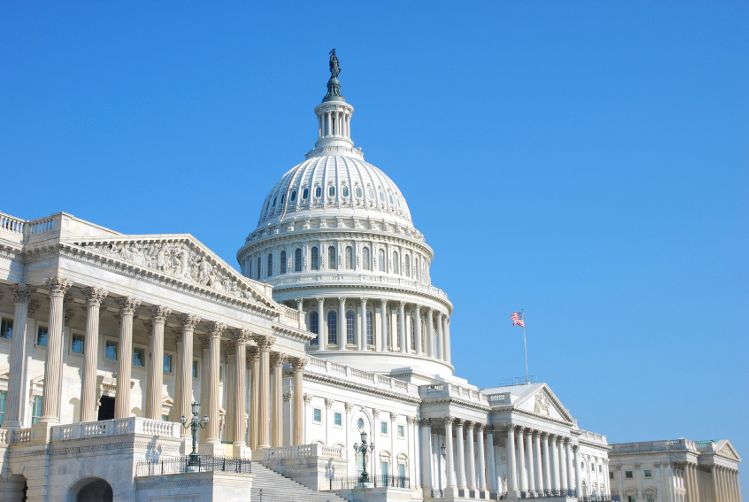CRN calls on Congress to clarify FDA’s authority over dietary supplements in the FD&C Act
The Council for Responsible Nutrition is calling on Congress to address an unintended “loophole” in the Food, Drug, and Cosmetic Act (FD&C Act) that casts doubt on the legal authority of the U.S. Food and Drug Administration (FDA) to regulate products that do not mee the strict definition of “dietary supplement” in the statute.
Photo © iStockphoto.com/uschools

The Council for Responsible Nutrition (CRN; Washington, D.C.) is calling on Congress to address an unintended “loophole” in the Food, Drug, and Cosmetic Act (FD&C Act) that casts doubt on the legal authority of the U.S. Food and Drug Administration (FDA) to regulate products that do not mee the strict definition of “dietary supplement” in the statute. Former director of FDA’s Office of Dietary Supplement Programs, Steven Tave, explained at CRN’s “NOW, NEW, NEXT” conference in October of 2020 that one of the agency’s major obstacles was that FDA could not take enforcement action on a product marketed as a dietary supplement, if the product did not actually contain any dietary ingredients.
For example, if a product carries a supplement facts label, but is composed of illegal drugs, illegal anabolic steroids, or analogues of prescription medications, they are outside the definition of dietary supplements, and therefore FDA cannot take enforcement actions against them, despite being fraudulently marketed as dietary supplements. “In November 2020, FDA identified products containing analogues of sildenafil, the active ingredient in Viagra, and a more recent report found nine prohibited stimulants in dietary supplement products,” said Julia Gustafson, vice president, government relations at CRN. “In both of these cases, the agency claimed that it was unable to use appropriate enforcement action because the products did not contain a lawful dietary ingredient, even though the products were labeled and marketed as dietary supplements.”
The problem stems from the definition of “dietary supplement” in Section 201 (ff) of the FD&C Act. “Unlike other regulated categories of products that are categorized by their intended use (e.g., drugs, cosmetics), the agency maintains the perspective that, for a product to be regulated as a dietary supplement, it must contain at least one dietary ingredient as enumerated in the statute,” explains Gustafson.
The text of Section 201 (ff) reads:
“(ff) The term ‘dietary supplement’—
(1) means a product (other than tobacco) intended to supplement the diet that bears or contains one or more of the following dietary ingredients:
(A) a vitamin;
(B) a mineral;
(C) an herb or other botanical;
(D) an amino acid;
(E) a dietary substance for use by man to supplement the diet by increasing the total dietary intake; or
(F) a concentrate, metabolite, constituent, extract, or combination of any ingredient described in clause (A), (B), (C), (D), or (E);…”
Therefore, if a product contains none of these ingredients, it does not meet the definition of a dietary supplement. “FDA maintains that it is prohibited from prosecuting that product as an adulterated or misbranded supplement if it does not contain a lawful dietary ingredient,” explained Gustafson. “FDA’s view is that the product must both be intended to supplement the diet and contain a dietary ingredient to be regulated as a supplement.”
FDA sought to fix this loophole by suggesting amendments to the FD&C Act in its comments to Congress on HR 8179 (Hemp and Hemp-Derived CBD Consumer Protection and Market Stabilization Act of 2020). These amendments would give FDA explicit authority to take enforcement actions of products marketed as dietary supplements, but did not meet the statutory definition of a dietary supplement. The proposed amendment would allow FDA to refuse admission of, and seize products that are in violation, helping FDA to control the market against unlawful foreign imports.
“CRN is discussing with offices on Capitol Hill where these provisions would most appropriately be introduced as legislation—whether as part of the CBD bill or in another legislative vehicle,” said Gustafson. “We will call on Congress to enact these amendments to enhance FDA’s oversight of the dietary supplement market.”
Senate Committee has released the text of 2024 Farm Bill, with changes to hemp regulations
November 19th 2024The U.S. Senate Committee on Agriculture, Nutrition, & Forestry has introduced the Rural Prosperity and Food Security Act, which will serve as the Senate’s draft for the 2024 Farm Bill.
Senate Committee has released the text of 2024 Farm Bill, with changes to hemp regulations
November 19th 2024The U.S. Senate Committee on Agriculture, Nutrition, & Forestry has introduced the Rural Prosperity and Food Security Act, which will serve as the Senate’s draft for the 2024 Farm Bill.
2 Commerce Drive
Cranbury, NJ 08512
All rights reserved.